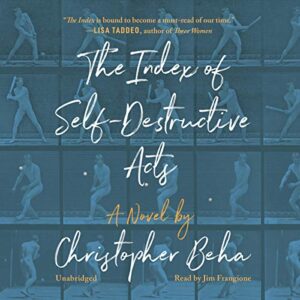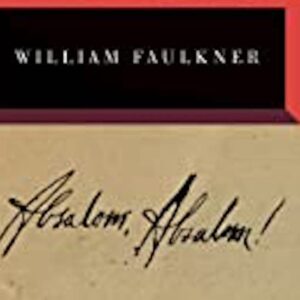For more than the past two decades—throughout my entire marriage (so far) and the near-raising of two children who are now seventeen and twelve—I have worked at a “day job” raising money from private foundations for journalism. It’s an odd little niche, with neither the splendor of asking HNW* (High Net Worth) individuals to support a museum, or the grounded satisfaction of ensuring numbers fed, or homework tutored, in a direct-service charity.
I was asked recently to speak, in a seminar series for professionals, on “the Beauty of Fundraising,” but as I sat down to reflect on what my remarks would be, I realized that the work had gone way beyond the activities of “just a job” to become an essential discipline—and, in case there are any worried parents out there, a profitable end point for a meandering, expensive college education. I thus thought that these reflections, reframed slightly, might be interesting here, for they cut to the heart of the ways in which literature and our aesthetic commitments can be still points of our own turning worlds.
I really mean that. For me, part of the beauty of fundraising is that it is a means of finding solidity, again and again. I am a person of faith, and a lover of ritual, but it was only when I embarked on a career in foundation fundraising for independent journalism that I learned the ways in which it could become a unifying force in my life.
I’d wanted to write ever since I was a child, back since I wrote “books” in Magic Marker on pages of Mead notebook paper that I folded and stapled. I didn’t just like to write, I liked to read, too. And that was the form that my education took, too—back in the very concrete- and business-minded era of the late eighties and early nineties. I loved the Humanities and the endless, unspiraling consideration of ideas. (And for that matter, I still do.)
I got an MFA in English and Creative Writing, and started publishing both fiction and nonfiction. But my efforts to write a longer work, a novel I’d long planned to write, were frustrated. I wrote and wrote, but no shape seemed to be emerging. I was lost in a vision that seemed compelling to me, but when I tried to telegraph it out of my own consciousness, I was frustrated. I now see that I had problems that went beyond the fact of my poor novel, and had more to do with my existential quest for purpose and meaning.
Money, however, can be incredibly clarifying. When I and all the other faculty members were laid off from a failing Great Books college startup—which is an entirely OTHER story; don’t ask!—all my uncertainty yielded to one insistent point: I had to find a job. And through the blessing of a friend and the benefit of writing my own artist statements and individual artist applications, I got an entry-level job in foundation fundraising at what was then mostly known as National Public Radio.
I remember my first task was to write a Year Two report on a big grant from the Ford Foundation. I learned to take the reporting transcripts, financial reports, and lists of deliverables, and to make something that had real purchase and meaning in the world—what we had done with their money, and what it had made possible.
That elegant distillation of a process, informed by the urgency of needing money and having to be responsible for it, was a revelation for me. It cut through the foggy swamp of my creative lassitude. As a discipline, and a tool, the process of fundraising hit me with the same force that some people feel when they discover yoga, meditation, or the Rosary. It was a way out of my distraction.
Awhile back, The Washington Post Style section had an article about a man—a poet—in his forties who was a recovering alcoholic, who was only able to finish writing his volume of poetry when he landed at his mother’s place and took a day job at the Palm Beach Brooks Brothers—day in, and day out, of folding shirts and sweaters gave him the stability for his other creative work. I’ve found it to be that way for me, too—my creative work, and the book draft I’m almost done with, has spiraled alongside the wall of my day job like a vine, growing in proportion. That stability has provided stability for my artistic life, as well. And the ways of combining and recombining resources to make a fundraising case have taught me how I can create an essay or a story from disparate parts to make a living whole.
Over the years and jobs I’ve had since, the discipline of fundraising for me has grown to encompass more skills, as it were, in its set. Fundraising has become as much about cultivating conversation and being a really good, deep listener as it is purely about the act of writing a concept paper, report, or proposal. As such, it has become even more of a transcendent endeavor, because the interlocutor on the other end of my conversation has a spirit, and a face. I’m thus always reminded that I am communicating with a soul and not just creating a product. As I reach out to program officers and philanthropists, I try to remember always that I am bearing a relationship with an Other, and not just being a pitchman for an It.
But though the circle of my activities has grown larger, the simple, practical aspects of the process itself have remained the same, and herein is found its beauty. Practice has taught me to reduce my idea to the most elegant and executable formulation. It’s taught me at the level of my sinews what it means for an argument for support to make sense, and then to demonstrate how that support has nourished and enriched an entire field of inquiry.
And in the strangest way, it has taught me a way toward love, because it has taught me that the solutions to the work we in nonprofits do—even journalism nonprofits—are a sharing of ideas. We shoulder our burdens together. Seeking support for the truth, and to secure essential freedoms alongside vital change, is an act of cobbling together, that we DO together. THIS is the process by which we find the solid ground to move forward in a chaotic and unstable time.
Caroline Langston was a regular contributor to Image’s Good Letters blog, and is writing a memoir about the U.S. cultural divide. She has contributed to Sojourners’ God’s Politics blog, and aired several commentaries on NPR’s All Things Considered, in addition to writing book reviews for Image, Books and Culture, and other outlets. She is a native of Yazoo City, Mississippi, and a convert to the Eastern Orthodox Church. She lives outside Washington, D.C., with her husband and two children.





